Retailer Guide
by Jess Erdman, Content Marketing LeadSeptember 2023

AI for eCommerce is the next generation of eCommerce that allows retailers to create a seamless shopping experience for their customers.
Surely, you’ve heard about it.
But, what exactly is AI for eCommerce? How does ChatGPT factor into the conversation? What kind of AI tools are most beneficial for your specific business?
In this guide for retailers, we’ll go over everything you need to know about AI for eCommerce, and offer use cases for real AI tools, and their results.
AI for eCommerce is an umbrella term that has been tossed around to describe everything from a clothing store using ChatGPT-powered chatbots to eCommerce brands using AI avatars.
When we talk about AI in eCommerce for retailers, we’re really talking about:
-Computer Vision: The ability for machines to interpret and understand images. Used for tagging detailed product attributes off a product image.
-NLP: Allows machines to understand and interpret human language and speech. Used for conversational commerce and search.
-Generative Technology: Creating new content from zero. For example, ChatGPT conversations, or DALL-E image creations.
As AI is becoming more advanced, solutions providers are also figuring out ways to combine these technologies to solve customer problems and solve them in new ways.
For example, the YesPlz GPT AI Stylist uses multi combined AI technology to offer a completely personalized shopping experience that’s one-of-a-kind.
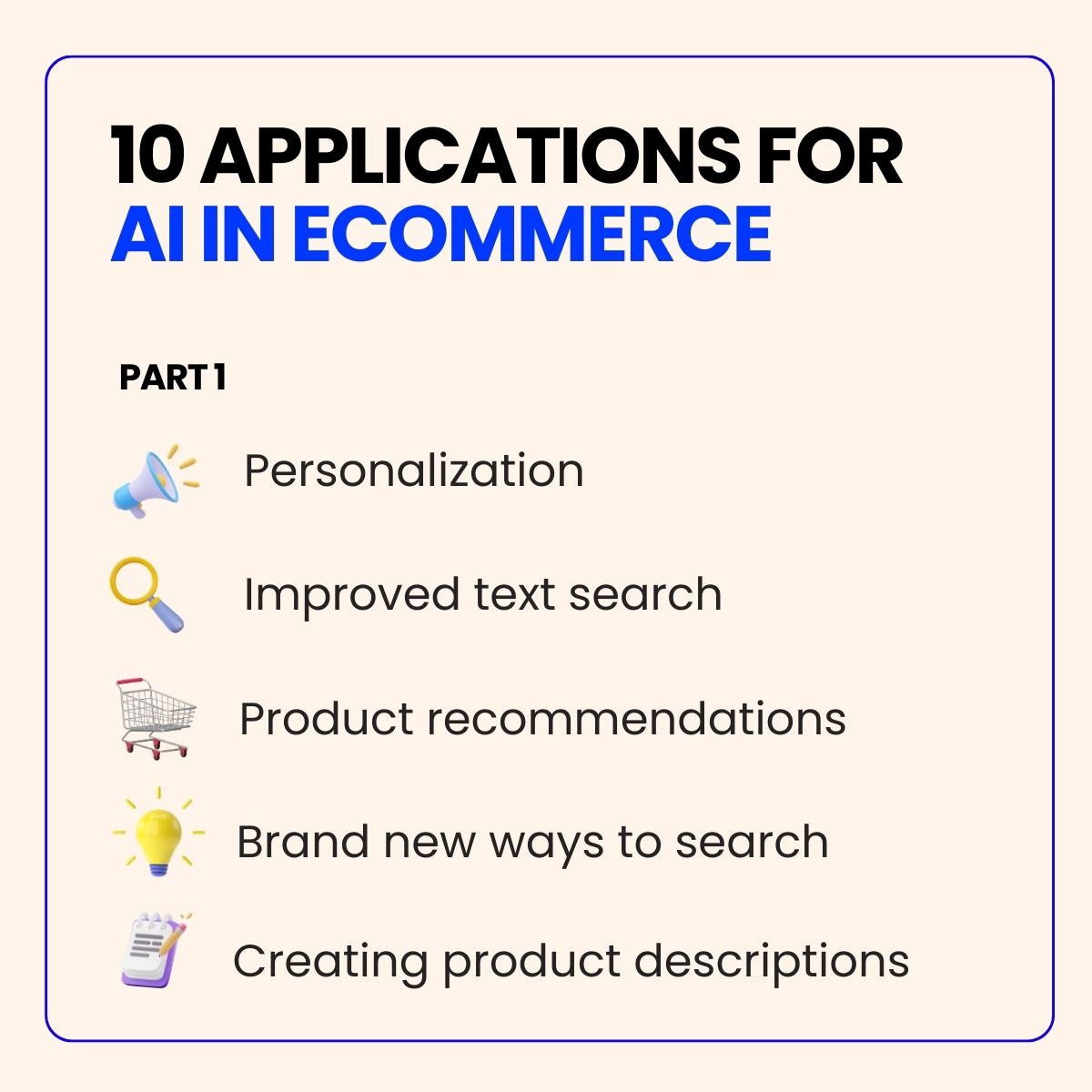
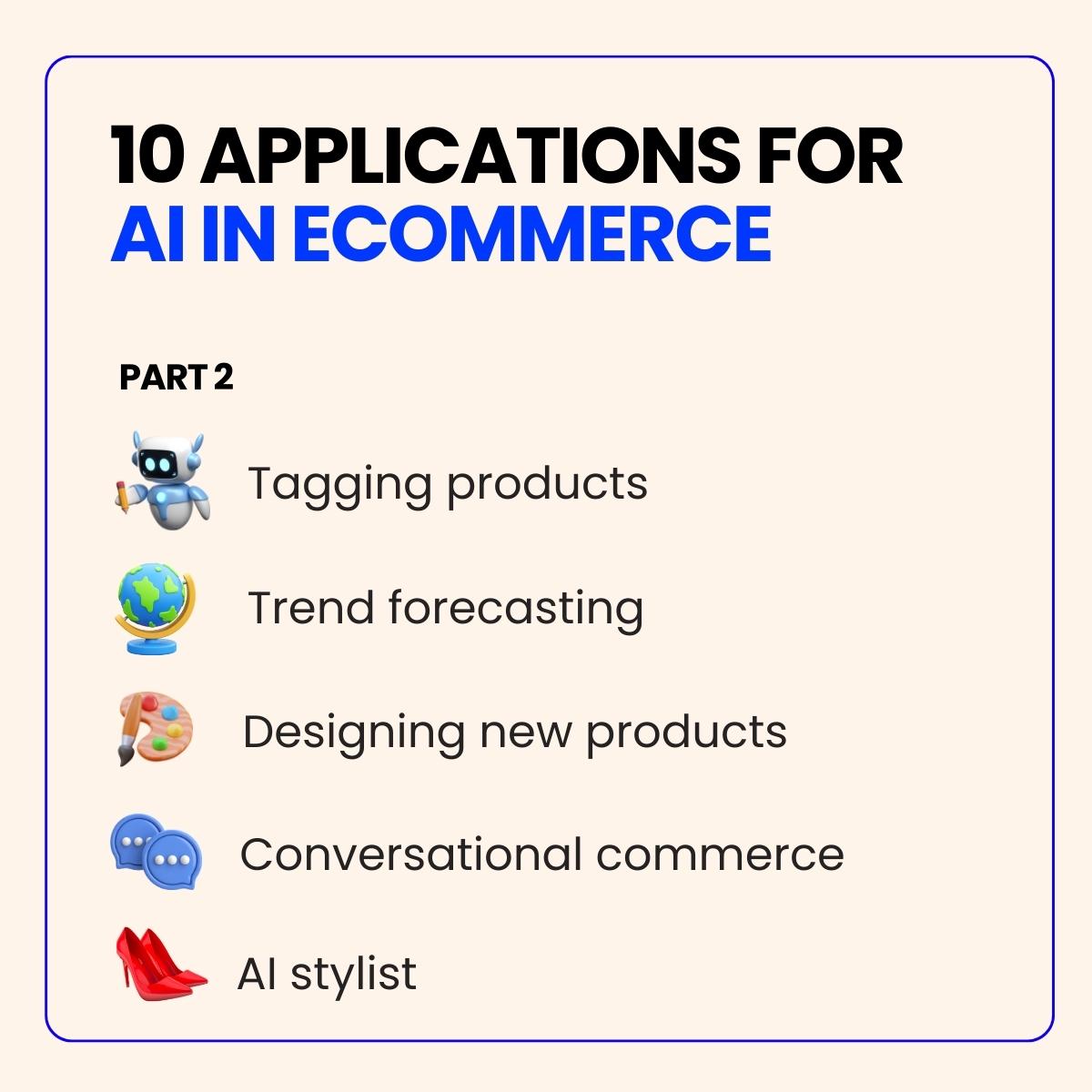
Still not convinced about the power of AI? Here are 10 ways AI is being used to transform the retail industry:
1- Enhanced personalization: Shoppers demand personalization, and AI makes it possible. AI can learn about shopper tastes and hand-pick products or be used to create segmented email campaigns based on preferences.
2- Improved text search: Text search is often bogged down by difficult to keep up with fashion taxonomy. AI can keep text search modern and fresh, and stay up to date on the latest trends.
3- Laser-accurate product recommendations: There’s nothing worse than a poorly served or repetitive recommendation. Whether it’s a similar look or a complete look, AI can more effectively generate recommendations, helping shoppers make better discoveries. AI makes sure to consider a range of factors like design attributes and vibe, when giving recommendations.
4- Brand-new ways to search: Shoppers are tired of the same routine text search. With the Virtual Mannequin Filter, powered by eCommerce AI, they can explore their preferred fits and silhouette on a virtual mannequin, creating an entirely new search experience.
5- Generating product descriptions: It can be exhausting for retailers to keep up with product descriptions, and write rich descriptions that improve onsite SEO.
6- Tagging products: AI can tag product attributes within milliseconds, including details like waist type, and complex categories like occasion.
7- Trend forecasting: With microtrends changing with the latest TikTok trends, keeping up trends can be tough, but with AI, retailers can be better informed.
8- Designing new products: Companies are starting to explore AI tools to assist in the product design process, automating and streamlining a complex process.
9- Conversational commerce to assist shoppers: Any retailer knows that shopper requests for help can be overwhelming, especially during peak hours. AI-powered chatbots can smoothly answer and assist.
10- An AI stylist that creates unique outfits for customers: End-to-end personalization with curated products, endless remixed outfits, and personalized styling is made possible with AI. To learn more, check out the GPT AI Stylist.
After listening to retailer needs both big and small, we determined that there were overlapping problems that plague every eCommerce:
1- Product discovery is complicated. With so many products to choose from, it is difficult for shoppers to find what they want. For retailers, it’s a struggle to keep up with so many new products.
The end result? Shoppers can’t find what they want, easily, due to lack of advanced product discovery.
2- Lack of engineering resources to build out more advanced AI. Retailers are strapped for time and resources, and unable to invest in the technical resources required to build out a robust AI solution.
But, there are AI tools for eCommerce that are solving these problems effectively and made just for retailers.
Here are the top 3 ways AI for eCommerce can help retailers:
One of the best ways AI in eCommerce can help retailers is by improving search filters. Shoppers want to use search filters to easily narrow down products by visual, design, and silhouette attributes. More and more shoppers are also demanding vibe and occasion filters to help them find the right products for a specific mood or occasion, like a night out or vacation.
Virtual Mannequin Filter: A new way to search for products, where shoppers can filter by their preferred product attributes on a virtual mannequin, and instantly find matching products.
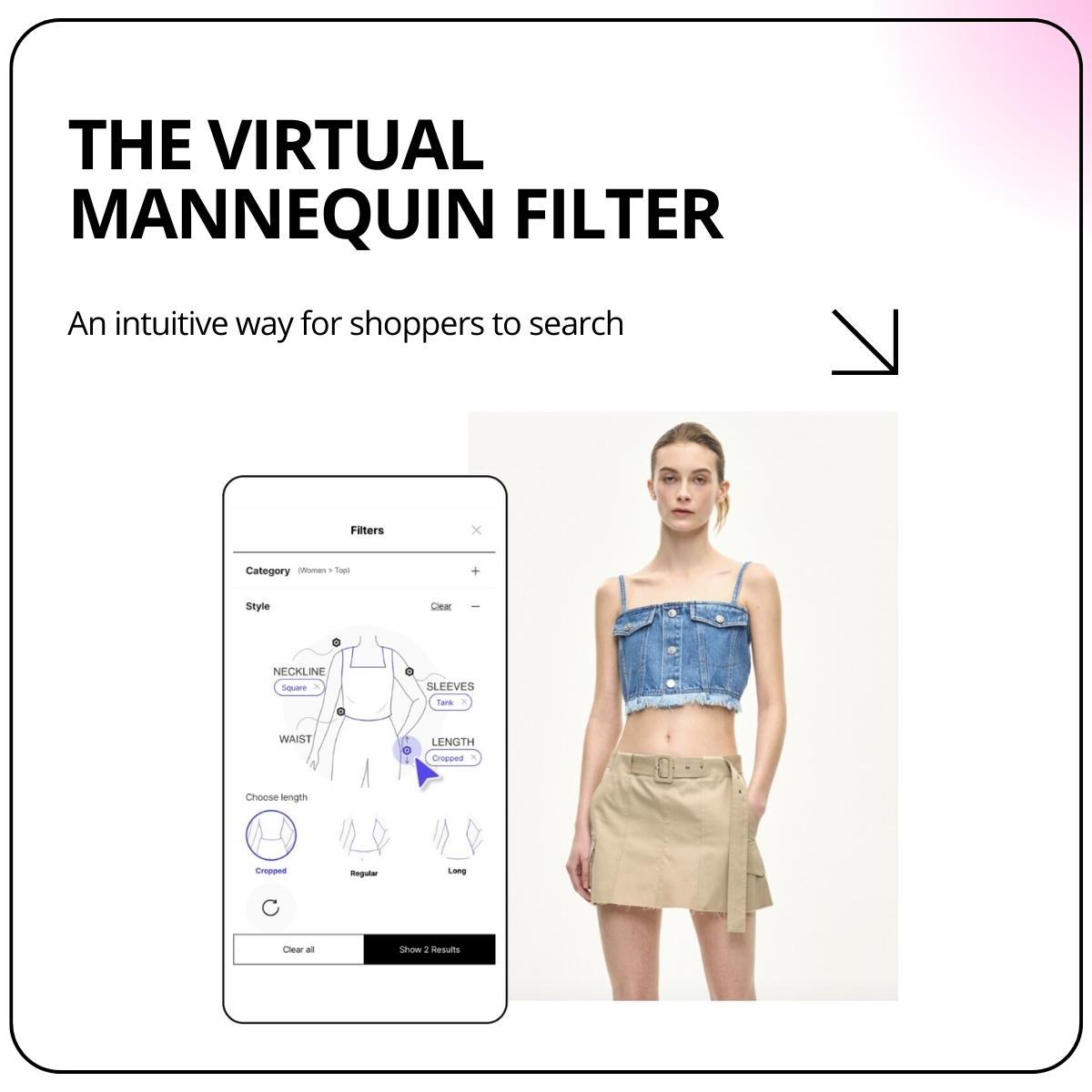
Occasion Filters: AI powers occasion filters, such as: night out, vacation, workwear, and more. Our research shows that shoppers want to search by occasion to quickly narrow down their search to relevant products,
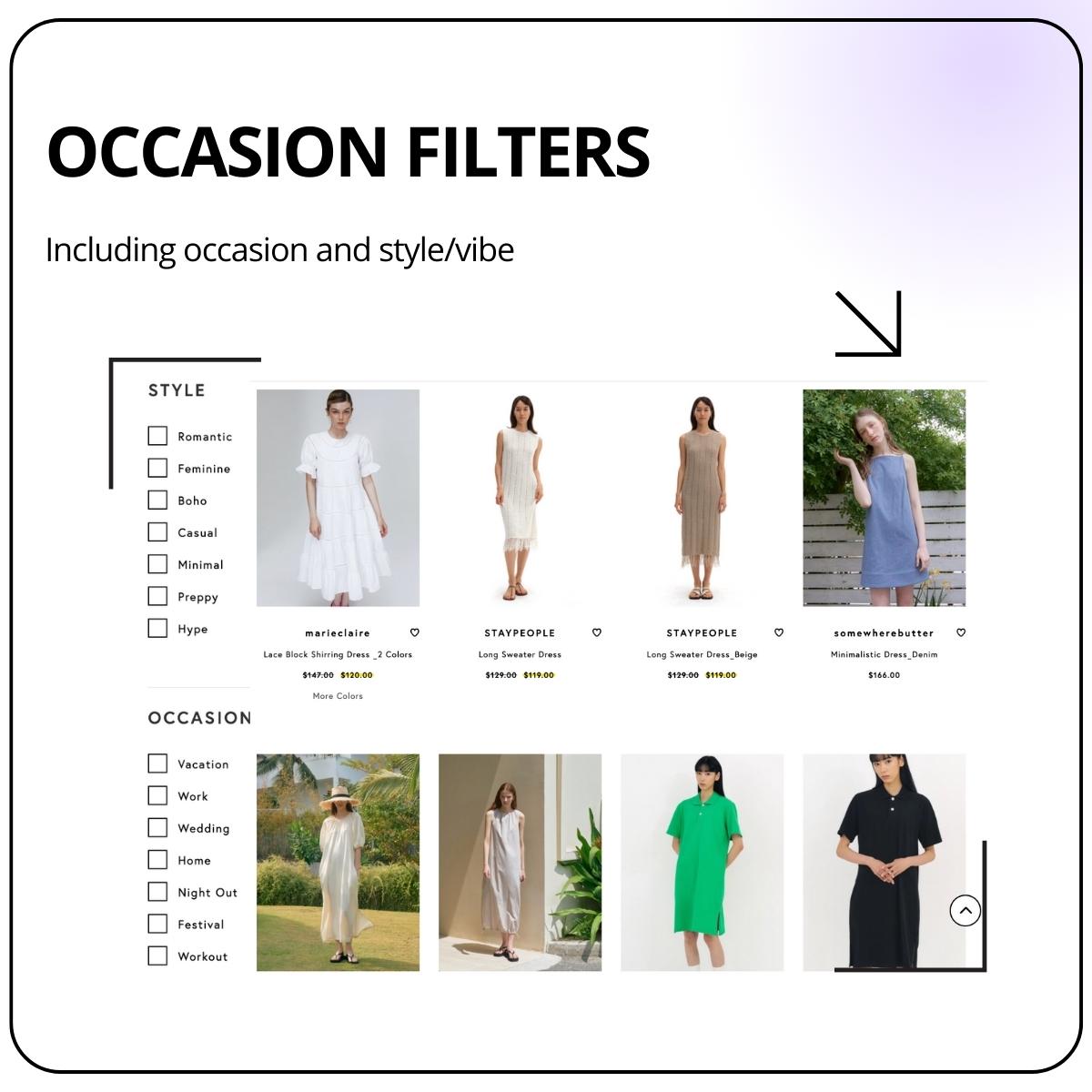
AI in eCommerce can improve search quality by offering more accurate search, as well as entirely new ways to search for products. AI can enhance text search by offering popular trending keywords, mapping product attributes to text, and offering auto-suggestions.
Enhanced Text Search: YesPlz enhanced text search includes fresh keywords and top suggestions with autocomplete, that are continuously updated based on the latest trends. And, shoppers can see image previews of products, making search even more engaging.

GPT AI Stylist: An end-to-end personalization platform with curated products for shoppers, as well as endless outfit remixes to keep them coming back for more.
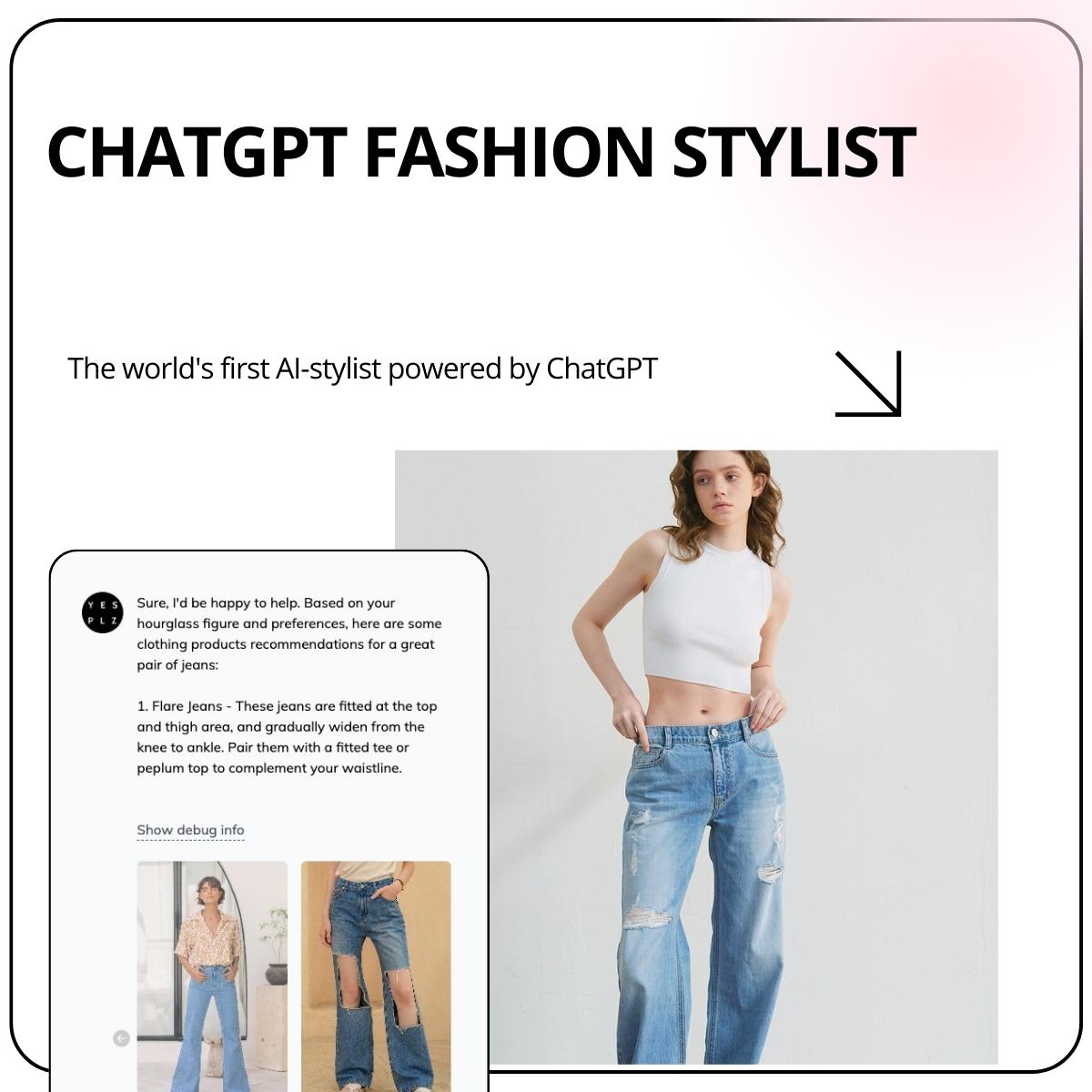
3. AI as Tagging
AI tagging can be used to help accurately and quickly tag product attributes to better set up the foundation for retailers to use other discovery apps, and improve their overall search and discovery. Powerful computer vision and natural language processing can interpret product images in any quality image, leading to a streamlined tagging process for retailers.
Tagging to power AI discovery tools: YesPlz AI tagging can tag 10 to 20 products within milliseconds, helping retailers to make sure that shoppers see the full depth of their product catalog.
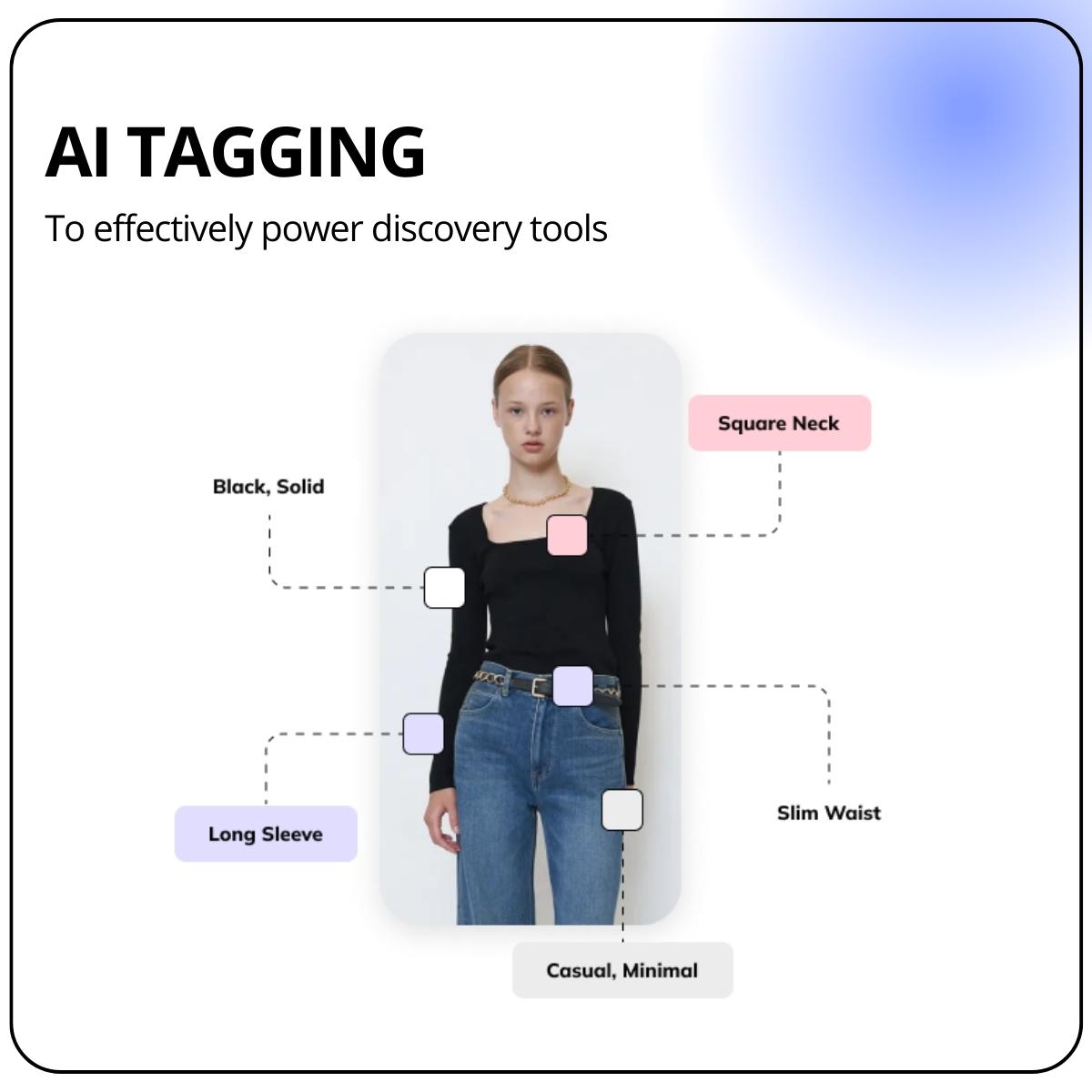
Generate product descriptions: YesPlz tagging can be used to generate product descriptions for retailers looking to improve their site search.
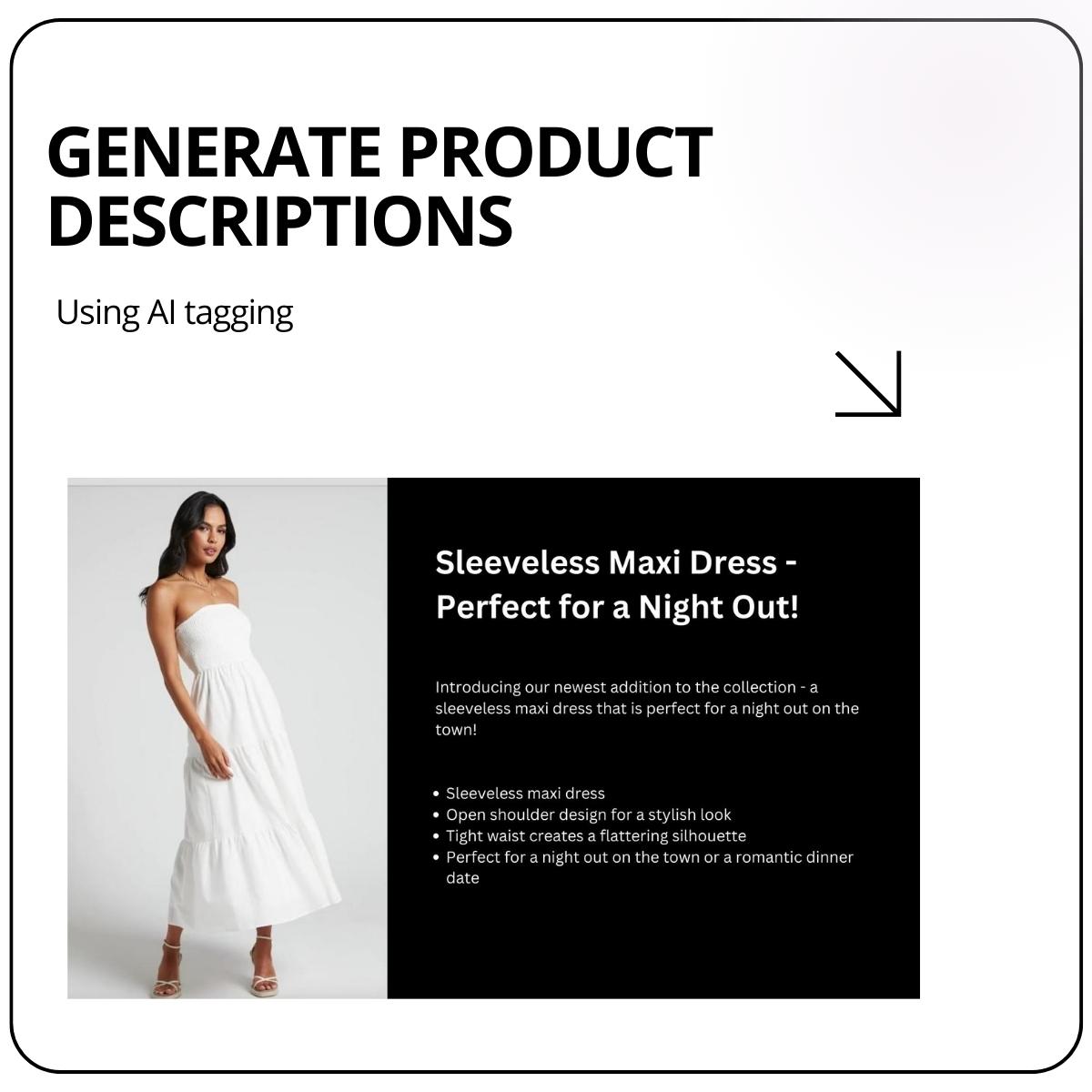
AI for eCommerce is a game-changer for retailers looking to take their online shopping experience to the next level. And, it doesn’t need to be difficult to implement.
Written by Jess Erdman
Content Marketing Lead
I'm passionate about creating cool content. The best part? I get to learn new things about fashion tech and ecommerce everyday. Have an idea or opinion about this article? Reach out at jess@yesplz.ai

Step into the mind of a fashion AI innovator and discover how she envisions the future of fashion retail. Here are 6 tips to successfully adopt AI in retail.
by YesPlz.AI

Ready to transform your eCommerce? Unlock 6 expert insights on adopting AI in fashion retail, and learn how to elevate your business success with AI.
by YesPlz.AI